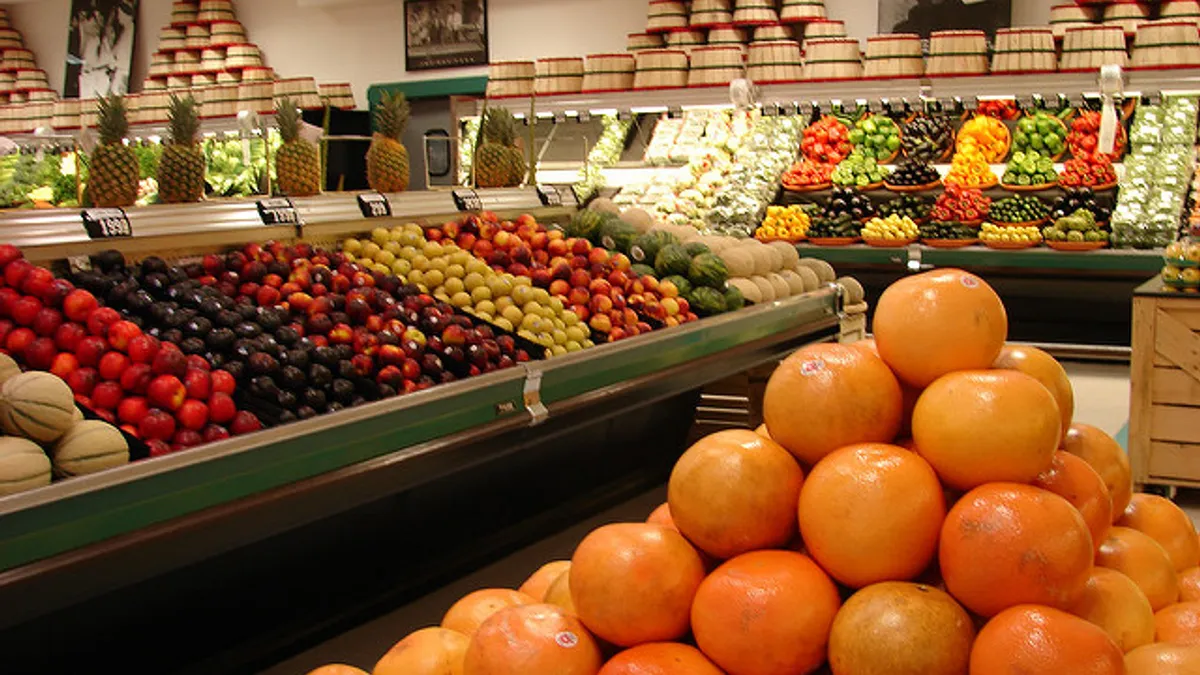Dive Brief:
- Chicago specialty grocer Treasure Island Foods will close its doors October 12, according to local news reports. The grocer laid off most of its corporate staff last Friday, the Chicago Tribune reported, and informed its store employees of the closure via a letter from CEO Maria Kamberos.
- Known for its wide selection of natural, organic and gourmet selections, Treasure Island Foods opened in 1963 and grew to seven locations. The company closed its Lincoln Park store last month and had an additional store in the works.
- “We have done everything we could to attempt to get the company on solid ground to try to operate for another 55 years,” Kamberos wrote in the letter to employees. “Unfortunately, given the current industry conditions, it has been impossible for us to continue to operate without losing money.”
Dive Insight:
Treasure Island was known for having one of the best selections of specialty products in town. Julia Child once referred to it as “America’s most European supermarket” — a compliment that eventually became Treasure Island’s slogan.
It was a pioneer, too. Longtime CEO Christ Kamberos, who founded the company along with his brothers, traveled the world in search of new products. In an interview with the Chicago Sun-Times, a former company executive said Kamberos brought organic produce into stores back in the ‘70s, long before consumers knew much about it, and well before there was a federally recognized standard.
It’s hard to say what exactly lead to Treasure Island’s downfall, though there were signs the grocer had fallen behind the times. Scanning through Yelp reviews, poor customer service and lack of store execution were two common complaints. In a market where supermarkets are racing to offer online shopping, Treasure Island offered a selection of shelf-stable foods through Google Express, a laggard in the grocery e-commerce race.
What’s certain is that the Chicago grocery market has become a tough place for independents to do business. Large chains like Aldi, Target and Whole Foods have grown and evolved. Aldi is building new stores and plans to remodel 130 of its 150 locations in the market by 2020. Target’s small format stores are popping up, while Jewel-Osco has remodeled roughly three-quarters of its stores over the past five years. New competitors like Fresh Thyme Farmer's Market have also moved in.
With so many grocers now offering natural and organic products at low prices — including conventional chains — specialists like Treasure Island have to offer shoppers more value for their money. This is the lesson Whole Foods and The Fresh Market have had to learn, and it becomes increasingly relevant as Aldi, Fresh Thyme and Sprouts Farmer's Market expand.
Treasure Island did attempt to change with the times. It remodeled stores and increased its availability of high-margin prepared foods and beverages. It planned to add a produce butcher at a store it had in the works. But in the end, this wasn’t enough.
Stiff competition in Chicago and other markets across the country is forcing grocers to lower prices, update their assortments and bankroll pricey store remodels. As long-time players struggle to stay afloat against chains with large economies of scale, expect more casualties like Treasure Island Foods in the months and years ahead.













